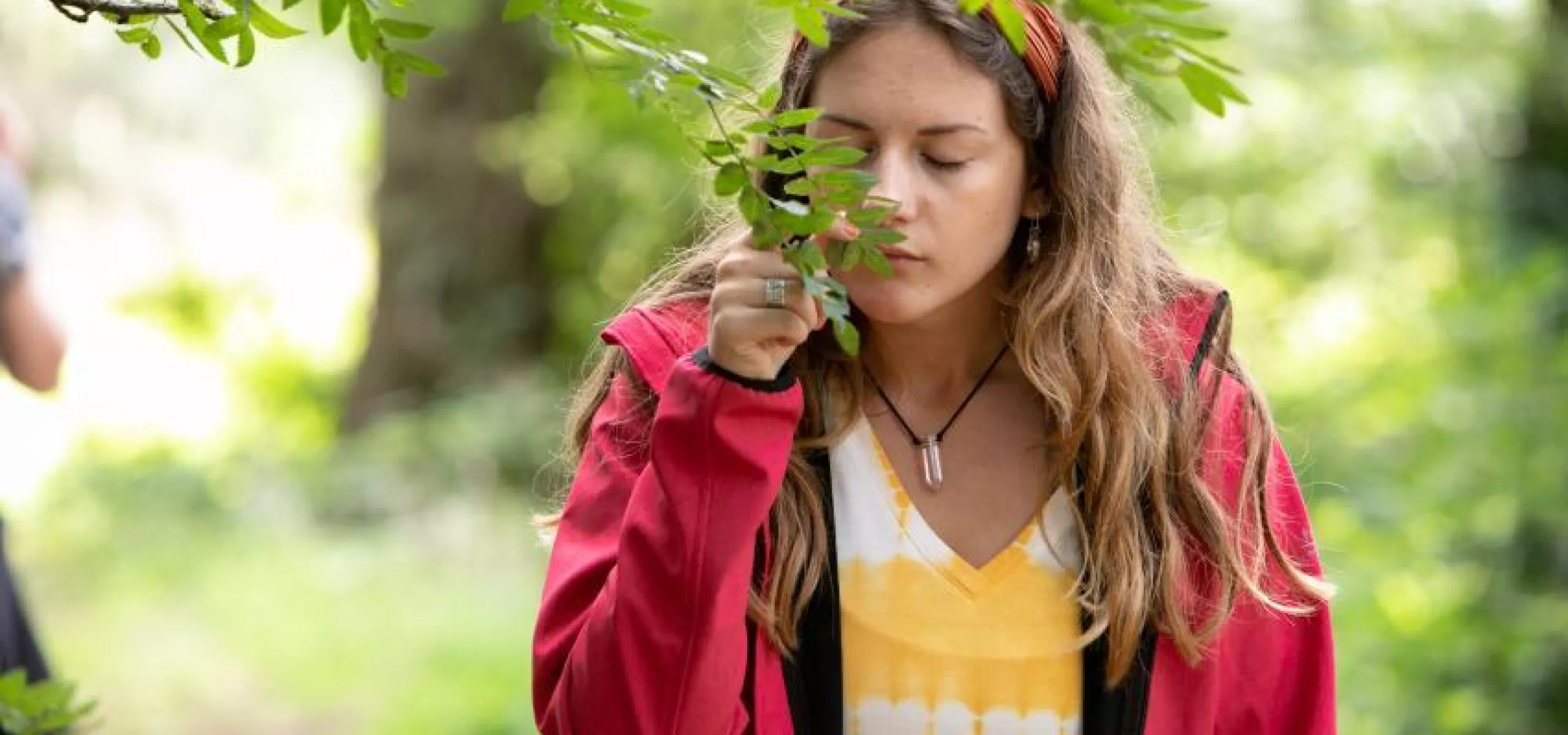This year, as part of World Mental Health Day, The National Forest look at the healing properties of nature and why being in the outdoors is good for us and our children.
10 Oct 2023
Added to basket
This year, as part of World Mental Health Day, The National Forest look at the healing properties of nature and why being in the outdoors is good for us and our children.
10 Oct 2023
If I was to ask you to picture your favourite place, a place that you felt calm and happy, a place you were able to breath, where would it be? Maybe it’s the beach you spent your childhood summers, or the summit of the top of the first mountain you climbed. Maybe it’s the river you visit every morning or the woods and fields near your house. Where ever your place is, I bet your answer is somewhere in the natural world.
People often talk about nature as though it’s something separate from us, but that isn’t the case. Humans have spent so much effort building urban environments that stepping out into a rural setting has become alien to the vast majority of us. But not that long ago, in evolutionary terms, we were creatures of the plains and grasslands, living under endless skies. What we forget is that we’re as much a part of nature as it is of us. It feels good to be in nature, because we are nature - because we’re coming home.
In today’s society everything is fast. We want fast food, fast Wi-Fi, fast post and a fast commute to work. Social media offers us instant tiny hits of gratification, and we no longer have to wait a week to discover what happens next on our favourite TV shows. Nature reminds us to be slow. It’s easy to forget in this speedy little world, but it’s hugely important. Gardening with children, planting seeds and watching them grow, not only teaches them patience, but also fills them with pride as their plant grows. Tomato plants are particularly good as you can eat your successes! If you’re a notorious plant killer such as myself, you can learn the importance of failure, and how to give yourself permission to try again.
Nature lets us to put down our screens and take note of the world around us. Ever been out on a walk and lost all your signal? I have, regularly, and I love it. It used to make me panic, the idea of being cut off, but now I realise that being outside is being in the world. When we walk through the woods or fields with ‘no service’ emblazoned on our screens, the pressures of modern life fall away from us. We’re no longer instantly contactable, and after a while, we lose the anxiety of thinking that we need to know what’s happening somewhere else. This allows us to be present, to check in with our body and breathe. We all need space from the demands of life, but very few of us get it.

Nature engages our senses and transports us to a space that demands nothing. When we’re amongst the trees, we aren’t being watched, aren’t expected to maintain society’s standards. We can be ourselves. We can let our children run around and climb – with supervision of course! It’s important to feel free, to be given the chance to occupy wide open spaces and breathe clean air.
Nature costs nothing and allows us to be somewhere we don’t have to pay to sit down. There are very few places like that left in towns and cities. We need somewhere we don’t feel the pressure of time, places we can be and not have someone looking over our shoulder, waiting to clean our table for the next customer. We need places where our value is not determined by our bank balance.
It’s important for us to bring the next generation into nature. To let them play, explore and be free outside. Not just for their mental health, but to help them to connect to the world, to form a bond with nature, to understand how important it is and preserve it – to reconnect with those endless skies.

Sophie Sparham is a poet and writer from Derby. They have written commissions for BBC Radio 4, The V&A and The People's History Museum. They co-host the night Word Wise which won best spoken word night at the 2019 Saboteur Awards. Their latest collection 'The Man Who Ate 50,000 Weetabix' came out in April 2021 via Verve Poetry Press. Sophie's work has been published in Orbis, Under the Radar and The Morning Star. Their poem Sunrise Over Aldi won third place in the 2020 Charles Causley International Poetry Competition.
Do you have a story or experience you would like to share? From poetry to personal stories, we would love to hear from you and your experiences of nature and the National Forest. Email us at stories@nationalforest.org